While politicians and social scientists have directed all their attention towards “islamist” terror groups, right-wing extremist milieus were able to grow unnoticed.
|
Memorial Art. Photo: Agnar Kaarbø, flickr |
(draft / see update 31.7.11) Oslo like a war zone, nearly 100 people killed in the worst attack on Norway since World War II: How could this happen? Two days after the attack, the web is filled with comments and analyses. But I have to consult international media to find a discussion of the, I suppose, most important issue: Right-wing extremist and islamophobic attitudes have become mainstream, but nobody cares - neither politicians nor social scientists. Instead, all their attention is directed towards “islamistic” groups as the major threat to the West.
“Europeans have spent so much time and effort in banning veils, minarets and preventing the construction of mosques that they have forgotten their own native cancer”, writes anthropologist Gabriele Marranci on his blog.
“We can no longer ignore the far-right threat”, argues Matthew Goodwin in the Guardian. Terrorist Anders Behring Breivik is “not a Norwegian oddity, but symptomatic of a growing culture of politically motivated violence across Europe”. It “is important to note that some of Breivik’s core concerns have also played a prominent role within Norwegian and European politics more generally.”
Nicolas Kulish provides us the details in his New York Times article:
Friday’s attacks were swiftly condemned by leaders from across the political spectrum in Europe. Germany’s Chancellor Angela Merkel was particularly sharp in speaking out against what she called an “appalling crime.” The sort of hatred that could fuel such an action, she said, went against “freedom, respect and the belief in peaceful coexistence.”
Yet some of the primary motivations cited by the suspect in Norway, Anders Behring Breivik, are now mainstream issues. Mrs. Merkel, President Nicolas Sarkozy of France and Prime Minister David Cameron in Britain all recently declared an end to multiculturalism. (…) While the parties themselves generally do not condone violence, some experts say a climate of hatred in the political discourse has encouraged violent individuals.
Therefore it is somehow correct when Ahmed Moor writes at Al Jazeera that Breivik did not act alone. He “acted within a cultural and political context that legitimises his fearful and hate-infested worldview.”
In this context, it is not surprising that the first speculations about who might be responsible for the attack centered around muslims. When I watched the BBC few hours after the attack, islam was the main topic.
Gabriele Marranci has observed the same in Italy:
Immediately the newscasters told us that it may be an Al-Qaeda attack in revenge of Norway’s marginal role in Iraq and Afghanistan, and the more recent Libyan air campaign. Islamic terrorism has hit Europe again. Immediately a flurry of comments about the high number of Muslims living in Oslo appeared – yet these were quickly substituted, upon confirmation that the culprit behind the bloodshed was a tall blonde man, with comments about the danger of ‘converts’.
Generally, the words ‘terrorist’ and ‘Christian’, he adds, are infrequently used together. Shooter is now the preferred word for Europeans committing terrorist actions as part of their political or religious beliefs.
“Tragic Day for Norway; Shameful Day for Journalism”, summarizes Shiva Balaghi in the magazine Jadaliyya. Among others, she mentions the New York Times that “let the story become one of Muslim terrorists wreaking the worst destruction on Norway since World War Two”:
As it turns out, the worst attack on Norway since Hitler’s invasion was actually carried out by a neo-Nazi. This attack was about Europe’s own ghosts.
The Colbert Report: Norwegian Muslish Gunman’s Islam-Esque Atrocity: CNN: - Nordic looking terrorist? Maybe it was a good disguise
If those journalists and analysts had been paying attention, they would not be surprised at all about this attack, writes Juan Cole:
Europol reports have long made it clear that the biggest threat of terrorism in Europe comes from separatist movements, then from the fringe left, then from the far right.
But, as it is noted on the blog Cultural Meanings, “the Islamophobic current in Europe and North America is so strong that it seems very difficult to swim against it.”
These views have also made it into academia. Two years ago I wrote about the Centre for Studies in Islamism and Radicalisation at the University in Aarhus, Denmark that views “Islamism” as “the primary enemy of the democratic world”.
Looking at the guide Terrorism: Anthropological Perspectives by Rutgers University Libraries shows similar bias. When they recommend “relevant subject headings” that you can use to find books on the topic “Terrorists Groups and Incidents”, then it is Al-Qaeda and Hamas.
The syllabus Anthropology 255: Terror and Violence in Anthropological Perspective at Washington and Lee University (Spring 2004 by Sascha L. Goluboff), while also providing examples from Ireland, deals mostly with Islam and the Middle East.
Far right extremism is a complex topic, as the case in Oslo shows. Breivik was “far from what we might term a traditional rightwing extremist”, Matthew Goodwin writes. Within the Far Right, the researcher has observed broader changes:
Rather than oppose immigration and Islam on racial grounds (an argument that would attract little support), the emphasis shifts on to the more socially acceptable issue of culture: Muslims are not biologically inferior, but they are culturally incompatible, so the argument goes. The aim is to open modern far right groups up to a wider audience.
As I also noticed during a public debate with racists in Oslo, the belief that they are engaged in a battle for racial or cultural survival is quite common.
“It is not simply about jobs or social housing”, Goodwin stresses. It is a profound sense of concern that a set of values, way of life and wider community are under threat, and that only the most radical forms of action can remove this threat.
In his manifesto that was put online before his attack, Breivik also calls for suicidal operations in service of the larger cause. He claims to be a follower of the Knights Templar - a medieval Christian organisation involved in the Crusades, and sometimes revered by white supremacists.
The Labor Party (Arbeiderpartiet), is the main target for this war, as it is commonly seen by these ”antiislamists” as ”worse than the Quslingparty in the WW2″ according to Torbjörn Jerlerup who presents Breiviks worldview in his text Antiislamists with World War Two rethoric and iconography.
I’ll close this post with wise words by Wilfred Hildonen who on his blog writes:
It is about time to realise that to be born and to have grown up within a certain geographical area, do not bestow us with a certain kind of personality; that being human is something universal, which implies that all of us carry both heaven and hell within and that we all are capable of inconceivable evil at the same time as we can show up an incredible degree of compassion and kindness. It doesn’t matter whether we are Muslims or Christians, Jews or French or Greek, Somalis or Norwegians.
He reminds us on the possibly explosive power of words:
Some of us will perhaps have to realise that we too, are responsible for our thoughts, our words and our attitudes. These form the basis for the deeds of the future - evil deeds included. Most of us will perhaps not be influenced, but someone, somewhere, will be. Words, thoughts and attitudes carry an explosive energy within and should therefore be treated with consideration. We should consider what we do think and say and our attitudes as well. Not because we shall be political correct, but because what we say and think today, may have unexpected consequences tomorrow.
(to be continued)
UPDATE 26.7.11 (via Erkan Saka’s round-up) Thomas Hylland Eriksen has written an in my view rather depressing (others might say a rather realistic) comment at OpenDemocracy: Norway’s tragedy: contexts and consequences. “The first consequence and the main message to Norwegian society is thus that citizens can never again be or feel entirely safe”, he argues. “We doubtless woke on Saturday morning to a slightly more paranoid, slightly less pleasant society. A society where we have become aware of our fundamental vulnerability.”
He also wrote a text for the Guardian Anders Behring Breivik: Tunnel vision in an online world and the New York Times (together with Jostein Gaarder) A Blogosphere of Bigots where he highlights the role of the role of the internet in fragmenting the public sphere. Norway’s extremists don’t tend to gather in visible ‘rightwing groups’. But online, he writes, they settle into a subculture of resentment:
Perhaps one lesson from this weekend of shock and disbelief may be that cultural pluralism is not necessarily a threat to national cohesion, but that the tunnel vision resulting from selective perusal of the internet is.
UPDATE 31.7.2011: Many new comments by anthropologists have appeared, see new post “How can I contribute to a better world?” Anthropologists on the Oslo terror attacks - an update
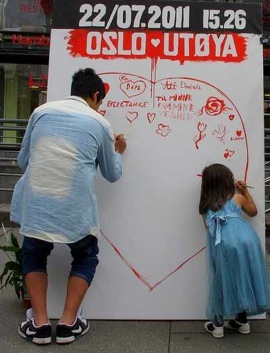

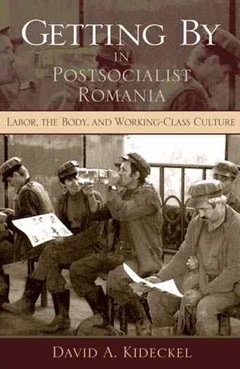
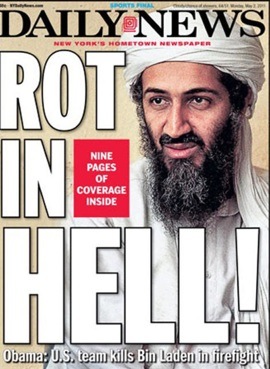
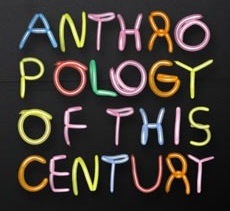
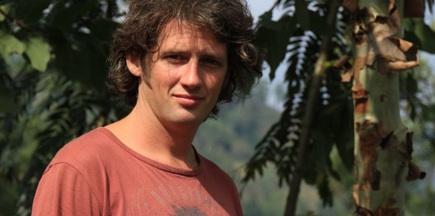
Recent comments